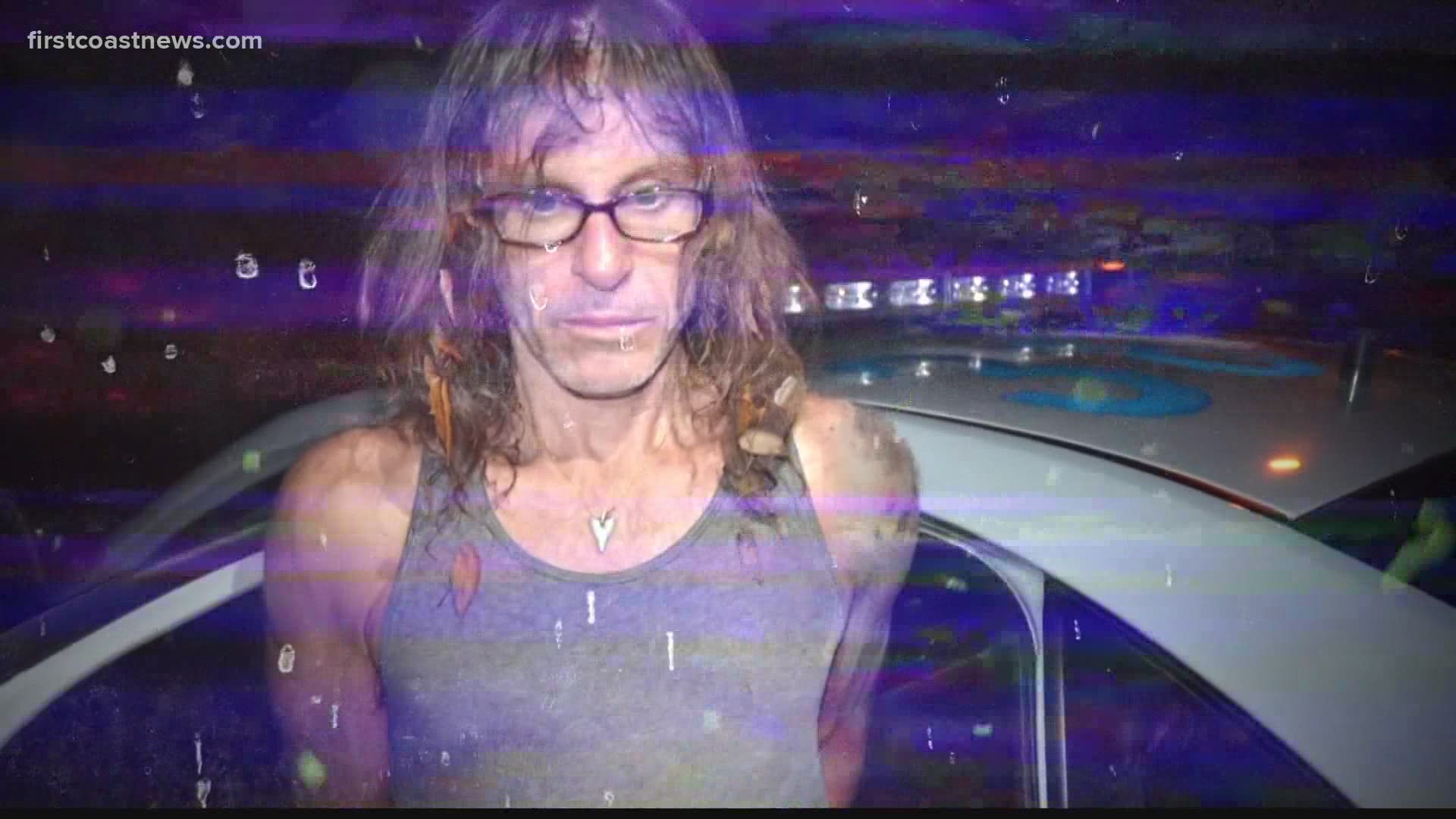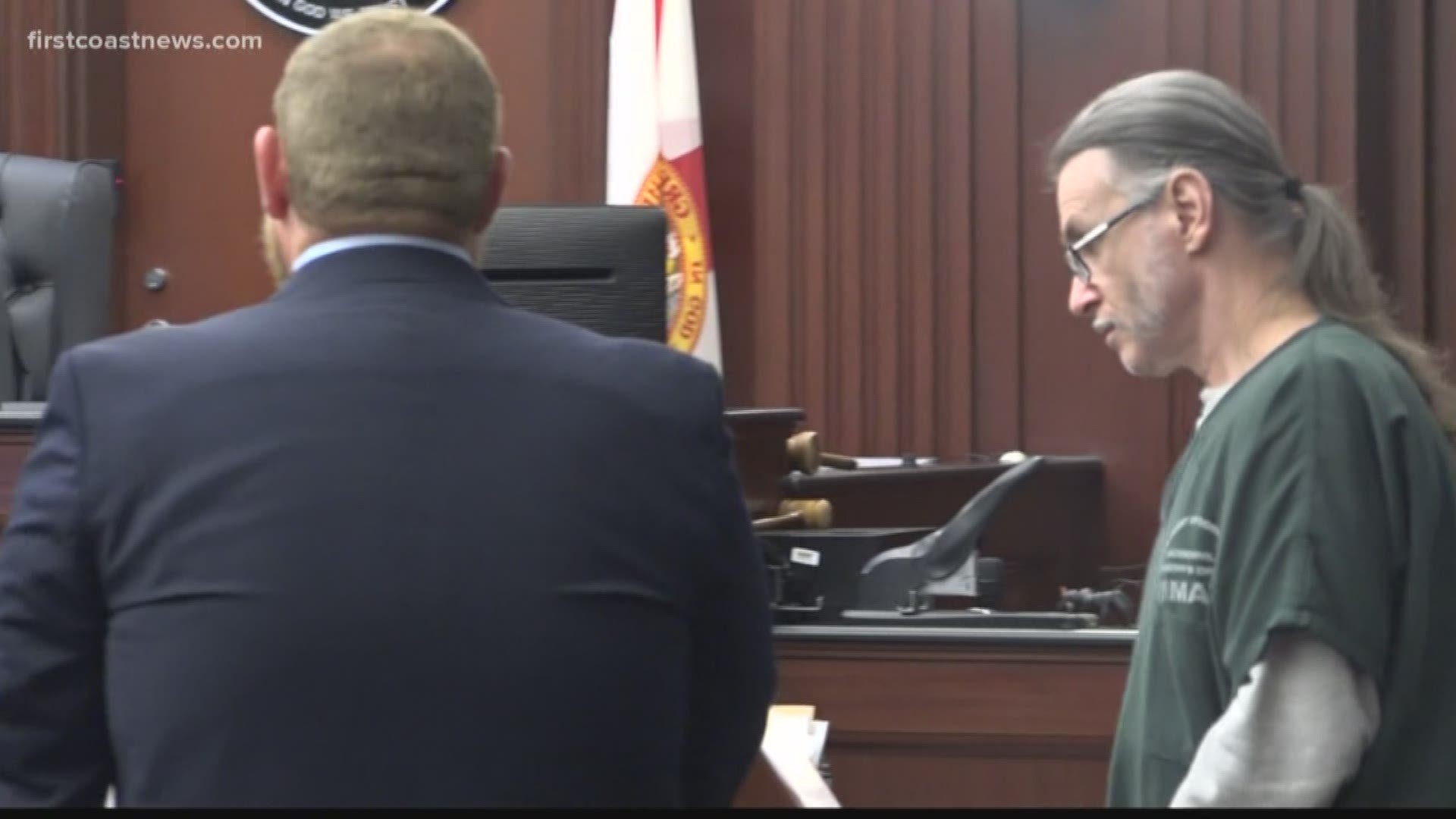JACKSONVILLE, Fla. — Note: The video with this story is from an earlier report.
A trial already delayed five times will begin in March, a judge said Wednesday, despite the crippling effect of the coronavirus on Duval County Courthouse operations.
“That is the Court’s intention,” said Circuit Judge Mark Borello, who is presiding over the death penalty trial of Russell Tillis.
Tillis, 59, is charged with kidnapping, murder and abuse of a dead body in the death of Joni Lynn Gunter. Her dismembered body was discovered in 2016 buried behind Tillis’ Southside home, which neighbors referred to as a “House of Horrors.” Tillis has pleaded not guilty.
The courthouse is officially scheduled to resume trials March 22, according to an email from 4th Judicial Circuit Chief Judge Mark Mahon, but many observers are skeptical, given the enormous challenge of holding in-person trials during the COVID-19 pandemic.
All but “essential” court functions were suspended by the Florida Supreme Court last March. For the next few months, 4th Circuit Courts operated primarily via Zoom. Some divisions, like family court, were able to process cases fairly smoothly. But criminal trials, which must be conducted in person, with juries, all but ceased.
Mahon ordered a limited return to felony court trials in October, but that plan was scuttled after courthouse employees, jail staff and a juror involved in a case before Judge Borello all tested positive for COVID-19.
In December, with local cases spiking, Mahon informally imposed a return to Phase 1 protocols, effectively shuttering courts in Duval, Clay and Nassau counties. He formalized that posture in January, noting local “health conditions have drastically deteriorated over the last month to the point that the entire Circuit is now trending up faster than or exceeds the state averages.”
In that same email, Mahon said trials scheduled for Feb. 22 or later “may remain scheduled, pending further notice.” That instruction now has many preparing for a return to jury trials in a matter of days.
At Wednesday’s hearing, Assistant State Attorney Alan Mizrahi asked Borello if the trial date of March 29 “is still a go?”
Borello said it was, adding that some accommodations would need to be made. “Clearly, at this point, I don't think there's any mechanism for having the complete number of jurors that we would need to conduct a death penalty jury selection in the courtroom at one time,” he said. “So we would have to do it in stages. But I think we can accomplish that. At least that is my intention.”
He said he would get with attorneys from both sides to make a more specific plan.
Aside from courthouse logistics, there are real questions about the willingness of jurors to participate. Although Jacksonville has spent $150 million on courthouse safety measures, including plexiglass and an informational video, previous efforts to seat juries have failed.
Late last year, Clay County sent out 400 summonses in an effort to seat a grand jury. Only 14 people showed up. At the time, Clerk of Court Tara Green said turnout may “serve as an indicator of the level of concern” about the virus.
That level of concern will no doubt grow in a death penalty case, where jurors can expect to serve at least two weeks.
Attorneys are also skeptical of a resumption of trials -- particularly defense lawyers, who must sit next to and consult with clients who typically reside in the Duval County Jail, where COVID-19 infection is rampant.
Tillis’ next trial date is March 18, when Borello will hear two motions, including Tillis’ request to suppress what prosecutors say is a jailhouse confession.


